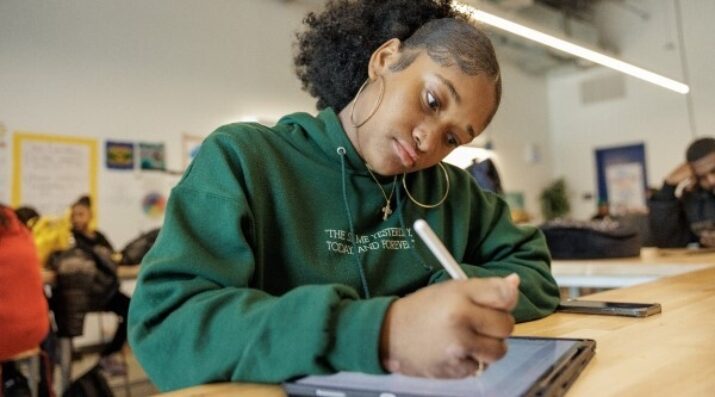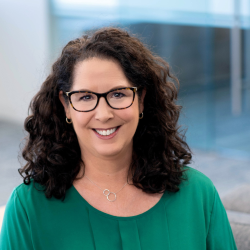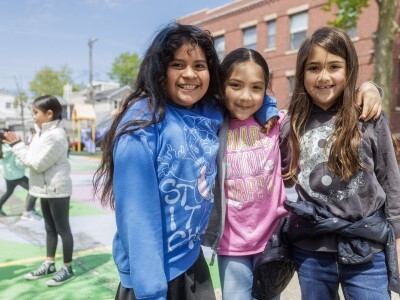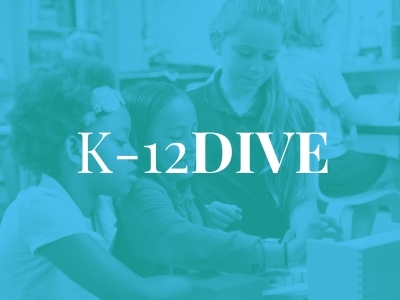Designing Education for the Alpha Generation in the Age of AI
Topics

Today’s learners face an uncertain present and a rapidly changing future that demand far different skills and knowledge than were needed in the 20th century. We also know so much more about enabling deep, powerful learning than we ever did before. Our collective future depends on how well young people prepare for the challenges and opportunities of 21st-century life.
It's time for educators to lead the charge to equip learners with new skills necessary to thrive in an AI-driven world.
Days ago, Taylor Swift endorsed Vice President Kamala Harris as the next President of the United States. Politics aside, what I found particularly interesting was that she brought up artificial intelligence (AI) in her endorsement, stating: “Recently I was made aware that AI of ‘me’ falsely endorsing Donald Trump’s presidential run was posted to his site. It really conjured up my fears around AI, and the dangers of spreading misinformation.”
Taylor’s not the only one with these fears: When ChatGPT entered the mainstream in late 2022, many teachers, education leaders, and districts discussed how they could combat AI in their schools. There was a fast growing concern over student use of ChatGPT, how educators might be able to identify AI in coursework, how to adjust lesson plans to get around the reliance of AI, and general panic over this unknown entity. However, over the past two years, the rise of AI has continued to grow and impact how we live, learn, and work—it’s not going away, and today’s youth, our Alpha Generation, is growing up with it as a part of their everyday life. It’s time that education leaders and practitioners adapt along with our students, and lead the charge, in order to equip learners with new skills necessary to thrive in an AI-driven world.
In my roles as president of LEAP Innovations and founder of Modern Teacher, I have seen how we are all called to find new ways to push classroom innovation, preparing our students for their future endeavors and keeping our country competitive with the rest of the world. There is a massive shift favoring AI tools across all industries. If we don’t adapt our educational approach now, public schools and our future workforce will continue to lag, meaning that we, as a country, will become less competitive.
This isn’t about keeping up with AI—it’s about leveraging it to build better, more equitable futures for every student.
While the urgency to build AI competencies is dire, it’s also exciting! There were—and still are—educators and leaders looking to resist the use of AI since the rise of ChatGPT, but I’ve also seen teachers seizing this moment to innovate their teaching practices; the “threat” of AI has become a reason to focus on critical thinking, problem solving, and adaptability. It’s also a chance to lean into important durable human skills that cannot be automated by technology, like empathy, relationship building, creativity, leadership, and collaboration. Essentially, AI is pushing us to expand teaching and learning beyond books and tests.
AI should be a tool for us to build and sharpen skill sets, but at the end of the day, those human-centered skills are unique to humans. This is especially critical for our Alpha Generation students who are growing up in a world where technology is the all-consuming norm. Case in point: A study by Common Sense Media in partnership with the University of Michigan Medical School found that 97 percent of 11- to 17-year-old students use their phones during the school day, with social media, YouTube, and gaming apps being the most frequently consumed. Students are already using the technology and they’re not going to stop—why not embrace AI as another tech tool to create a more learner-centered approach to instruction?
In a similar vein, teachers have become more bogged down by compliance-related tasks that are stifling the parts of their jobs that they truly love. The mandated checkboxes have taken joy out of teaching and have exacerbated the burnout rates we’re witnessing across the country. In a convening of the Chicagoland Coalition for Human Centered AI Practices which LEAP Innovations recently helped to launch, Google global head of education impact Jennie Magiera spoke on AI as a tool for teachers to leverage for rote tasks so they can get back to the humanity of teaching, like relationship-building and helping students become better versions of themselves.
But lingering ethical implications can turn opportunity into continued disparity. No matter a child’s zip code or ability, every student should have the opportunity to learn with AI, not just those with privilege. Without equitable access to technology, we can’t prepare our students for the future with fidelity nor can we teach them how to utilize these tools responsibly. That’s why companies like Playlab, a lead partner in the Chicagoland coalition, are working to create safe sandboxes for all students and educators to experiment and innovate with AI.
Beyond equity and access, there is a need for critical media literacy curricula in order to help students decipher fact from fiction. As Taylor Swift said, there’s a danger to misinformation spreading through the use of AI. With the Alpha Generation, we have an opportunity to set these students up for success by honing in on critical thinking skills and learning how to fact check sources early in their educational journey—and why it’s important to make ethical choices when wielding AI tools for their own purposes.
This isn’t about keeping up with AI—it’s about leveraging it to build better, more equitable futures for every student. Our role as educators and education leaders in a fast-growing world of AI is a “both/and” approach: we must embrace these changes and proactively shape the role of AI in the classroom; we must empower students to take charge of their own learning and teach them responsible boundaries and use of AI tools; we must prepare for AI and become leaders in the space. These stakes are high: if education doesn’t adapt, public schools will fall behind. The Alpha Generation deserves an educational experience that reflects their world—let’s lead with opportunity instead of fear. Afterall, the first Beta Generation will be born in the year 2025!
Photo at top provided courtesy of LEAP Innovations.




